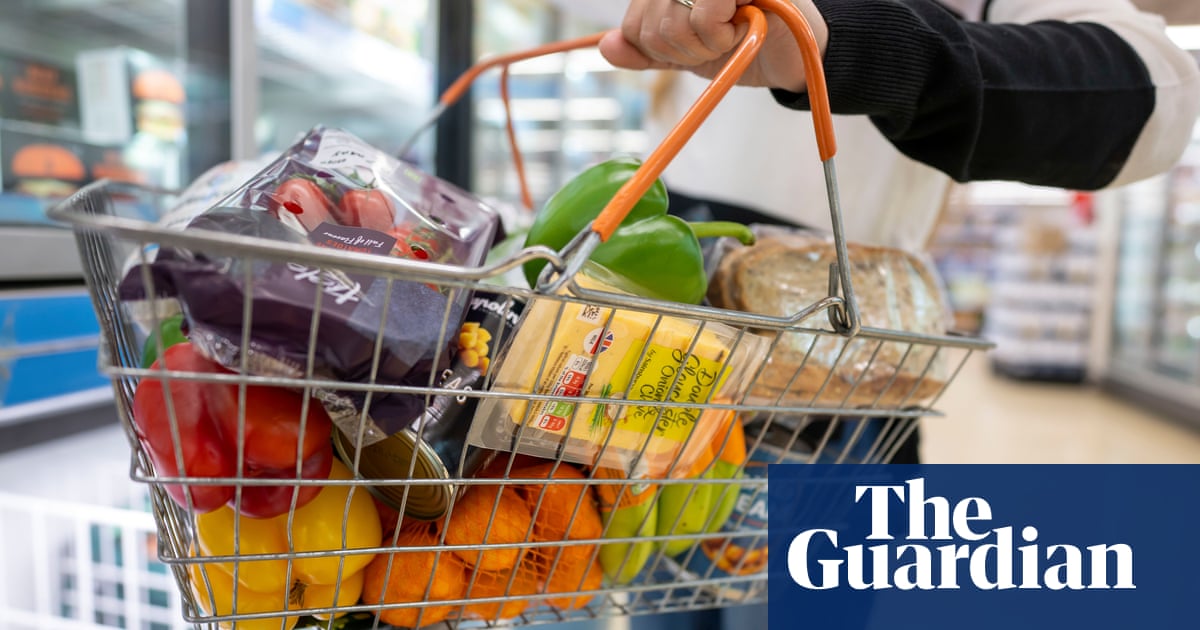UK inflation fell to 2.3% in April – its lowest level for almost three years – but the decline was smaller than expected, denting hopes of an early interest rate cut.
City analysts had forecast the annual increase in the cost of goods and services would fall to 2.1%, close to the Bank of England’s 2% target.
Markets responded by trimming their predictions that the Bank would cut rates from their current 5.25% level as early as next month, with forecasts of a reduction in August also scaled back.
Last month’s fall in the consumer prices index, down from 3.2% in March, was driven by easing energy and food costs. The last time the Office for National Statistics (ONS) recorded a lower rate was in July 2021.
Electricity and gas prices fell over the last year by 27%, the biggest drop on record, and food prices increased by only 2.9% annually, the lowest rise since November 2021.
Illustrating the pressure on household budgets and the reluctance to buy big-ticket items, furniture retailers cut prices by 0.9% between March and April, and the cost of all goods dropped by 0.8% month on month.
Annual services inflation, which mainly reflects the costs companies charge each other, was 5.9%, barely down from March’s 6%.
A sharp rise in property rents over the last year kept a measure of inflation that includes housing costs much higher than the headline CPI. Higher mortgage costs were another factor that meant the ONS’s alternative consumer prices index including housing (CPIH) rose by 3% year on year.
Inflation was stubbornly high for much of last year, mainly because of a rapid rise in the price of imports.
The ONS said inflation was prevented in the last month from slowing more by a rise in petrol and diesel prices, although the price of a barrel of Brent crude has steadied recently at about $83 (£65).
Yael Selfin, the chief economist at KPMG UK, said the likelihood of an interest rate cut as soon as next month had receded, adding: “Falling inflation closes in on the Bank of England’s target but may not be enough to sway an early rate cut.”
Paula Bejarano Carbo, an economist at the National Institute of Economic and Social Research, said core inflation remained higher than its historical average at 3.9% and this would need to fall before the central bank’s monetary policy committee was comfortable cutting rates.
“Paired with last week’s strong wage growth data, we believe that elevated services inflation will remain an upwards risk to inflationary pressures in the second half of this year. As a result, the MPC may exert caution at its upcoming meeting and hold interest rates, despite today’s encouraging fall in the headline rate.”
Prices grew by 2.4% in the 20-member eurozone in April, the same as the previous month.
after newsletter promotion
Separate figures from the ONS released on Wednesday showed the public finances suffered a larger-than-expected rise in April.
The high cost of financing the UK’s government debt played a large part in pushing the monthly deficit to £20.5bn, the fourth highest April borrowing since monthly records began in 1993 and £1.9bn more than official forecasts.
Debt payments decreased by £1.7bn to £8.6bn but remained at a higher level than the Office for Budget Responsibility (OBR) had pencilled in.
Some analysts said the figures showed the government’s finances were being squeezed and ruled out tax cuts by the chancellor before the general election.
Martin Beck, an economic adviser to the EY Item Club, said: “The new fiscal year got off to a disappointing start for the UK’s public finances, with borrowing coming in above the OBR forecast. The effect on debt servicing costs of higher Bank Rate and gilt yields than the OBR assumed in its budget forecast mean that this underperformance is likely to continue for the rest of the financial year.
“It’s unlikely that OBR forecast revisions would offer the government scope for another tax-cutting fiscal event before the next general election.”

